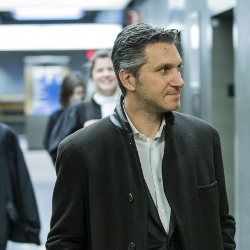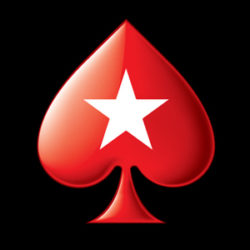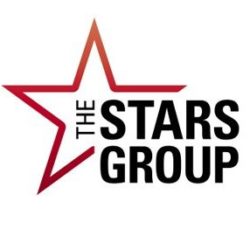PokerStars Says Strike Resulted In Improved Healthy Poker Ecosystem

If the recent boycott of PokerStars by disgruntled online grinders was designed to demonstrate their value to the world’s biggest poker room, then their actions can only be described as an overwhelming failure. Frustrated at PokerStars’ decision to cut VIP Rewards and pass on the savings to recreational players, the site’s high volume players staged a three-day strike between December 1st and 3rd, but instead of affecting the site’s traffic, PokerStars actually experienced an uptick in business during the affected period. Furthermore, the pros’ actions seem only to have reinforced PokerStars belief that its policy revamp was correct, and as Vice President of Corporate Communications Eric Hollreiser (photo) subsequently explained:
“During the three-day boycott we recorded the healthiest consecutive three-day ecosystem results of the year with steady net gaming revenue, even though our net-depositing players lost at a much lower rate than they have all year.”
Grinders Overplayed Their Hand
Before calling their boycott, PokerStars online grinders theoretically looked like they held a strong bargaining position, with the implication being that by acting as a block they had the potential to adversely affect the site’s bottom-line. By acting on their threat, but limiting their strike to just three days, however, this group of players indicated to PokerStars that they needed it more than PokerStars needed them. By not budging from its position, PokerStars then allowed this group of players to reveal the actual strength of their hand, and the outcome of their actions seems to have now removed any leverage they may have once held.
PokerStars Traffic Spikes
Even if the three-day boycott resulted in a slight 5% drop in traffic, PokerStars would still have seen this as an indication that the site was in great shape, with a small drop in traffic compensated by the increase in player satisfaction from its recreational customers. Instead, PokerStars traffic actually spiked by 33% on the strike’s first day, with further gains reported throughout the action. Of course, the online grinders probably shot themselves in the foot by organizing the boycott during a PokerStars Milestone Hand promotion. Nevertheless, that promotion largely targeted the site’s recreational player base, and as twitter poster Kim Lund subsequently concluded :
“Now people just have to let go of the idea that liquidity requires regs to retain reasonable revenue efficiency (take). It doesn’t.”
PokerStars Strikes Harsh Tone
After the ineffective strike, PokerStars said that it would proceed with its VIP policy overhaul, and as Eric Hollreiser subsequently stated:
“In that spirit of transparency, we can tell you that we did see effects from the recent boycott that give us even greater confidence that our strategy is on the right track to improve the health of the ecosystem.”
Many regular grinders see this as further proof of the contemptuous attitude in which they believe PokerStars now regards them. While this does not bode well for future relations between this group of players and PokerStars, some blame must be apportioned to the adversarial approach these players adopted straight after the VIP announcements were initially made. Not only did they question PokerStars’ integrity and motivation for the changes, but they also refused to open up a meaningful dialogue with the company, or accept a different point-of-view to the one that they had already formed. This lack of respect probably helps explain the site’s recent change of attitude from being one of apathy to their cause, to its present wholly more hard-line position.
What Now For The Pros?
All indication suggest that the relationship between PokerStars and its online grinders may now have been stretched beyond breaking point. Therefore, if the poker room ever intended to grant some concessions to its pros further down the line, their recent actions may have scuppered such a peace offering all together. Still, the online poker landscape is continually changing with the need to adapt ever more crucial for an industry which has been contracting since 2006. It was the rise of the online pro, and the subsequent drying up of the industry’s recreational player base, which is seen as a major contributing factor to this decline. Therefore, PokerStars and other operators are currently doing their utmost to appeal to this vital demographic, including limiting HUD use, doing away with table selection, increasing promotions, and introducing poker game variants high on fun, but low on skill, such as Spin & Go tournaments. Needless to say, online grinders are currently seen as a hurdle standing in the way of PokerStars achieving its long term objectives, and as Hollreiser explained recently:
“We will not alter those plans. The current VIP program is no longer fit for its purpose. When combined with the increasing skill gap in the online poker market, the result is an increasingly poor experience for recreational and new players.”










